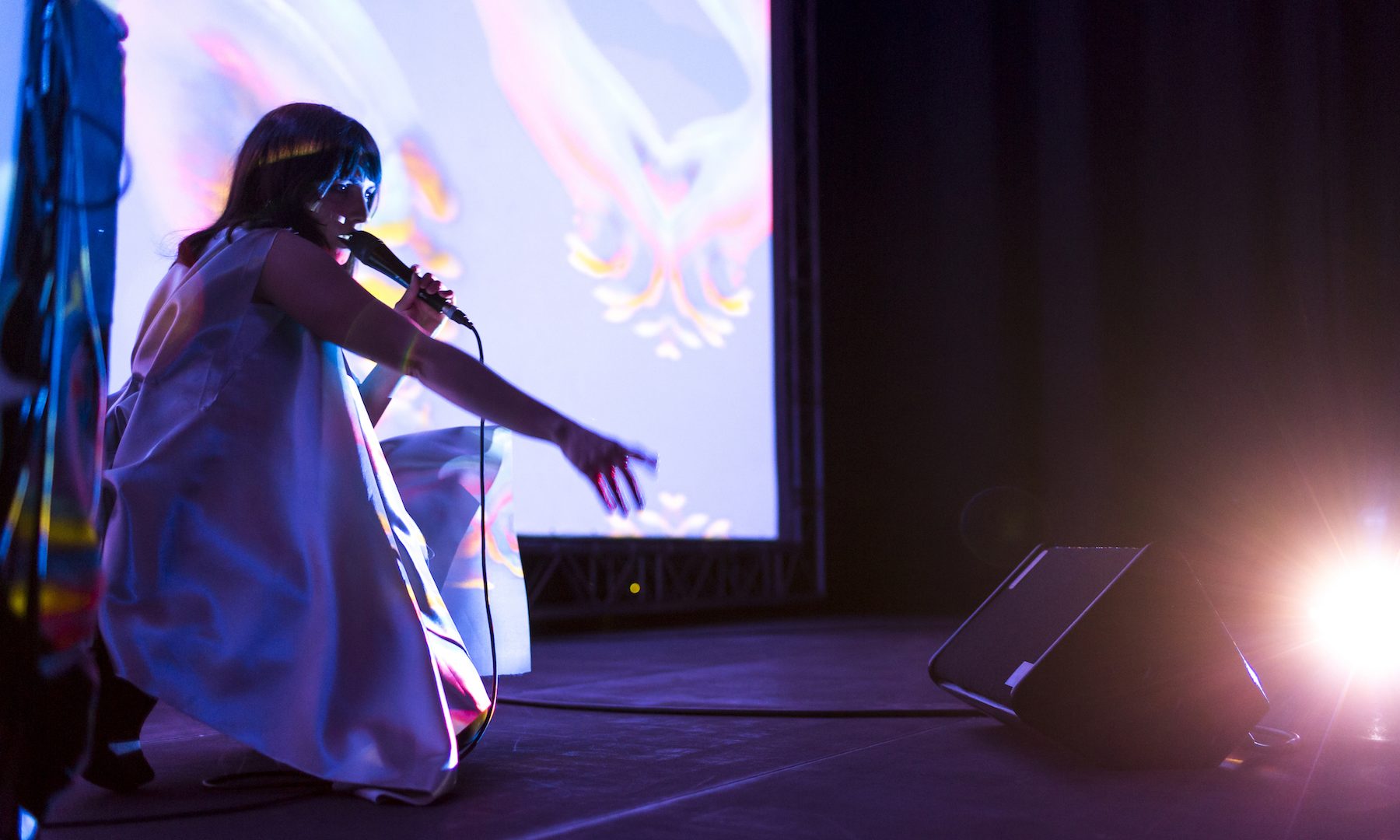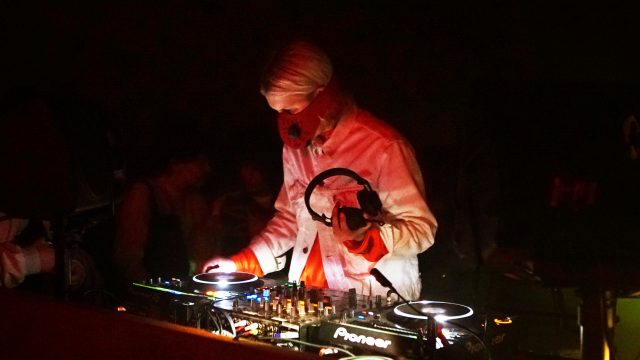Lief Hall is back in Berlin for a special double performance. The artist and musician is currently living in Vancouver, B.C. Canada and was previously one half of the electronic music duo MYTHS who toured with Grimes in 2012. Hall’s solo music integrates elements noise, improvisation and extended voice to create her own unique vision of dark electronic pop.
On Friday night at ACUD Club, Lief plays music from her soon to be released record “Roses for Ruins.” Opening the night for her is warsaw pop wonder Pictorial Candi. During the launch of the science fiction magazine Kapsel on Saturday in the Studio, Lief presents her new lecture “Un/Seen: Performing the Invisible” which explores the relationship of dreams, memory and algorithms.
We are very happy to have Lief at ACUD! For our Blog we have asked her five questions about Science Fiction.
If you could choose, on which planet would you like to live?
The planet Athshe from Ursula Le Guin’s book “The Word for World is Forest” is a place that really appeals to me. Athshe is a planet that is completely covered by forest, and the Athsheans that live there are non-violent and in total harmony with nature, never killing animals or cutting down trees. I mean, it would be a big change for me from living in the city, so I would have to really consider it carefully, but sometimes the idea of living in a forest among peaceful little beings really appeals to me. But it is a bit of a pipe dream since humans are banned from the planet, as well as the fact that it doesn’t actually exist, haha.
You most favorite SF book?
My favorite SF books are Ursula Le Guin’s “The Left Hand of Darkness”, Margaret Atwood’s “The Handmaiden’s Tail” and pretty much every Octavia E.Butler book. The things that I really love about these writers is that not only are the books incredibly well written, but they also make me re-discover and re-think my everyday life experiences and things I take for granted. For example, after reading “The Left Hand of Darkness” the idea of there being only two sexes seemed so strange to me. In the book there is a third sex, which is both male and female, and the book really normalized that for me and basically undid a lifetime of social programming of previously dualistic thinking.
Similarily, in “The Handmaiden’s Tail” I became newly aware of the precarity of women’s rights. The book basically took something which actually happened in the Middle East, where women who had fought for and won equal rights suddenly had all their rights taken from them by a return to secularism. Because the story takes place in a modern time and in North America it really hit home and made me understand on a very personal level what others in the world have actually experienced. It also made me realize how the struggle for equal rights is not something which is always progressing, but is something which can be taken away at any time, and so is a very precious thing which must be protected. I think the best science fiction stories, like these ones, help us to understand the present in a much deeper way far beyond simple entertainment.
Where does your fascination for algorithms come from?
I am not particularly interested in algorithms so much as in the current way in which human lives are socially, politically and ethically constructed. Oddly enough algorithms in this day and age seem to play a very major role in this. I am also very interested in the connection between the things we see and the things we do not see and how the unseen, the ethereal, the invisible, effect the world in a very physical way. Algorithms to me are like dreams, memories, or the subconscious in that they are deeply connected to the way we live our lives everyday but their impact is often not fully appreciated because they act under the surface.
Do you believe in utopias?
Good question! I think that striving to create the best world we possibly can for ourselves and for others is absolutely essential but that the idea of perfection, of a utopia, usually leads to more harm than good. This is one of the big themes in SF which we see in older books such as “Brave New World” or in more recent movies like “Equals”. The idea that we can create a perfect world, totally free from any form of pain, violence or emotional turmoil can only be imagined through a kind of external governing and control of people, which in both SF and in reality only leads to more pain and more harm than good.
Why is SF not only for nerds?
I think there is definitely still a place for nerds in the SF community, haha, but at this point there is a lot more SF has to offer to more than just this niche group. For one thing the accelerated production of new technologies makes SF stories much more relevant and more plausible than ever as it helps us to understand where these new technologies are leading us. It is so easy to just consume these new technologies without thinking, to alter our lives around them, but SF is one way in which we can step outside the everyday and question what we are doing, the short and long term implications.
The fact that SF has been instrumental in imagining technologies which now actually exist or are being created makes it even more relevant to us today. A couple small examples of this are William Gibson’s coining of the term cyberspace or the movie “Gattaca” which imagined genetic alteration of unborn fetuses, which is now in the process of being developed. So I think there is a very real exchange happening between fiction and the construction of our current reality.
More generally I think SF has the ability to take us outside of our everyday experience, to reveal things about the present from an altered perspective, so we can see ourselves more clearly. For me that is the real value of SF.






